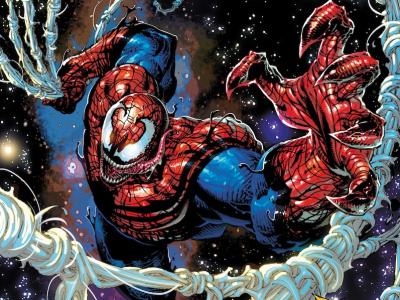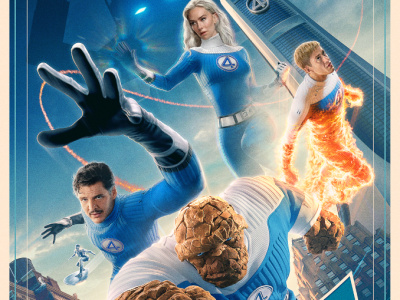John Riley of Grasshopper's Comics in Williston Park (on Long Island), New York saw the comments by Ilan Strasser of Fat Moose Comics on the number of Marvel trade paperback titles that are out of print (see 'Ilan Strasser of Fat Moose Comics on Marvel TPB Unavailability') and agrees, but also sees another problem with the Marvel trade paperback line:
Ilan Strasser was right on the mark with his assessment of Marvel's trade paperback problems. Marvel has been out of stock on certain books for months, including the early volumes of many big sellers such as Ultimate X-Men and Supreme Power. As Strasser points out, these are key comics to introduce new customers to the world of comics and it is impossible to sell the later volumes without the earlier volumes available.
Marvel should have as close to 100% in stock rates as possible. After all, if you owned a McDonald's franchise and the corporate office told you they only planned to provide you with cheeseburgers 80% of the time, you would certainly re-evaluate your investment. These are key products and a high fill rate is essential.
However, Strasser failed to comment on another key problem with Marvel's trade paperback program which I personally feel is incredibly disturbing, and that is the slow but constant shift away from older, historic storylines towards basically reprinting last months comics. Marvel has adopted the 'DVD Model' for trade paperbacks. Just like movie studios hoping to recover revenue on the DVD release of a bad movie, Marvel will print a trade paperback of anything, basically banking on those short-term incremental sales to boost a title's profitability.
The result is a gradual shift away from proven older material toward reprints of recent material which is often marginal at best. Over the past year we've seen such books as Elektra Assassin, Hulk Future Imperfect, Earth X and The Infinity Gauntlet go out of print, while we've been graced with reprints of the newest Chuck Austen work. Marvel recently released a 2099 trade paperback but has never reprinted Starlin's Warlock, the original Silver Surfer run, and most of Peter David's Hulk.
These are all titles that are key to developing new readers. Sorry, but we don't hook new readers with the newest installment of Chuck Austen's X-Men. Rather we use Infinity Gauntlet to spark the imagination, and use Elektra Assassin to show what's possible in comics. Our strategy has always been to introduce a new reader to a number of proven stand-alone stories throughout the spectrum of comics before we introduce them to a series. While the ten volumes of Ultimate Spider-Man are phenomenal reading, it can look like a big commitment to someone who just wants to 'try out' comics.







